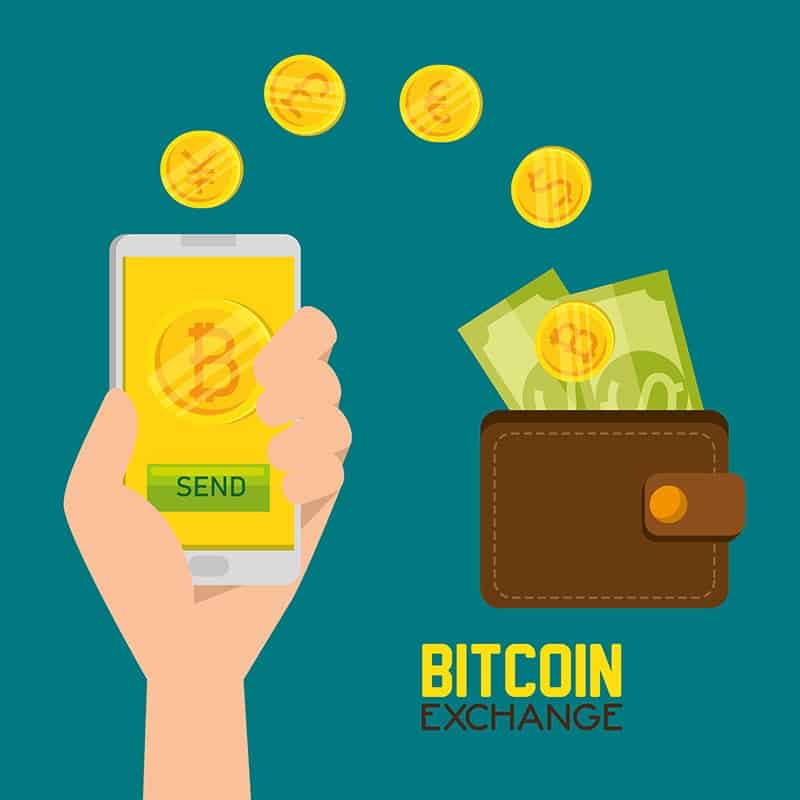Desktop crypto wallet isn’t just another buzzword; it’s your financial knight in digital armor. Imagine combining convenience with iron-clad security—effortlessly keeping your Bitcoin and Ethereum stash safe, right at your fingertips. It’s not a tech fantasy; it’s real, accessible, and, believe me, you don’t need to be a hacker to get the hang of it. In this deep dive, I’ll walk you through everything from choosing a top-notch wallet to implementing security that would make Fort Knox jealous. Stick with me, and you’ll be a coin-securing wizard in no time.
Understanding Desktop Wallets for Cryptocurrency
The Basics: Hot vs Cold Wallet
A hot wallet connects to the internet. It’s easy to use for trading and everyday spending. But, it can be risky. Hackers might get in. So, it’s good to only keep small amounts of coins there. Like your real wallet, don’t carry everything in it!
Cold wallets are the opposite. They’re offline, so they’re safe from online attacks. Imagine a safe where you keep most of your money. It’s not easy to get to all the time, but it’s secure. For big amounts of cryptocurrency, cold wallets are best.
Put simply, if you’re active with your coins, hot wallets are convenient. For long-term saving, cold wallets keep your crypto safe.
Secure Coin Management Offline
Managing your coins offline means they’re safe from hackers. Let’s talk about how to do this. First, choose a secure desktop wallet for cryptocurrency. Look for one with good reviews that supports many coins.
When you pick a wallet, installing it right is key. Follow the steps carefully to avoid any slip-ups. Once it’s on your PC, your coins are in your hands. That’s a great feeling, but also a big responsibility!
Encryption is super important. This is like a secret code for your wallet. No one else can understand it. Make sure you use a strong password for your wallet. It’s like your own digital safe.
Also, write down your private keys and keep them safe. If your computer stops working, you’ll be glad you did this. It’s how you prove the coins are yours if you need to restore your wallet.
Outdoor enthusiasts have a saying: “No rain, no rainbow.” Same with crypto security: a bit of effort now can save you a lot later.
For ultimate safety, turn to cold storage methods. For example, keep your private keys on a USB stick that you store in a safe place. Only connect it to your PC when you need to make a big transaction.
Remember, security is about layers. The more steps you use, the safer your coins. Use a desktop wallet as part of your security plan, and you’ll make it tough for any thieves. Your future self will thank you!
In conclusion, diving into the world of desktop wallets opens up a safe and manageable way to handle your digital wealth. By understanding and using hot and cold wallets wisely, you’re setting yourself up for a stress-free crypto experience. Embrace the responsibility with the right tools, and your journey into cryptocurrency can be both exciting and secure.
The Best Crypto Desktop Wallets Available
Comprehensive Review of Top Wallets
When talking about desktop wallets for cryptocurrency, not all are made equal. I have tinkered with plenty, and some truly stand out. Let’s talk about what makes the best tick.
Above all, security tops the list. The best crypto desktop wallets offer iron-clad security. They protect your digital wealth with strong encryption. This stops unwanted eyes and hackers in their tracks.
Another key part is having control over your private keys. Simplified, this means you alone manage your wallet’s entry ticket. No third-party has access, and this is crucial for security.
The top desktop wallets aren’t just secure—they’re also a breeze to use. They guide you in managing your cryptocurrency portfolio. With visual charts and simple tools, you’ll never feel lost.
Updates and patches are hallmarks of a diligent provider. I constantly watch for these as they squash bugs and close security gaps. Always ensure your wallet is up-to-date.
These wallets score high on flexibility and cover various digital currencies. They let you handle Bitcoin, Ethereum, and a bunch of altcoins without breaking a sweat.
Bitcoin and Ethereum Wallet Features
Bitcoin desktop wallets and Ethereum desktop clients share some qualities, but also sport their own features.
First off, design-wise, they are user-friendly. They make sending and receiving digital currency as easy as email. Whether Bitcoin or Ethereum, you’ll find clear buttons and simple steps.
Bitcoin wallets often let you adjust transaction fees. This means you can save money when the network is less crowded. Some also support running a full node, aiding the network and boosting your security.
Ethereum clients, on the other hand, handle smart contracts. This brings a whole other layer of options. You can interact with decentralized apps straight from your wallet.
For added safety, look for wallets with two-factor authentication. This adds another checkpoint to keep your coins safe. It’s like having a double lock on your digital treasure chest.
In summary, the best desktop wallet for cryptocurrency will check these boxes:
- Strong security measures
- Full control over private keys
- Straightforward interface
- Regular updates
- Multi-currency support
- Customizable features specific to Bitcoin and Ethereum
Choosing the right wallet keeps your digital wealth safe and sound while making your crypto life easier. Whether you’re a Bitcoin enthusiast or an Ethereum explorer, there’s a desktop wallet out there that’s a perfect match for your digital currency needs. Find one that aligns with your habits and dive into the new era of money—secure, sovereign, and right at your fingertips.
Implementing Strong Security Protocols
Encryption and Access Control Measures
Desktop wallets for cryptocurrency keep your coins safe on your PC. They turn your computer into a secure bank for your digital wealth. These wallets, like the best crypto desktop wallets, use encryption to guard your coins. Encryption scrambles your wallet data. Only your password can unscramble it. Think of it like a secret code that only you know.
Always set a strong password for your Bitcoin desktop wallet or Ethereum desktop client. This is your key defense. Without it, anyone can access your coins. Also, make sure you use two-factor authentication for your wallet. This adds another security layer. It’s like having a second lock on your safe.
Control who gets into your wallet with access control. Your wallet should let you manage who has approval to use it. Keep your private keys secret. They unlock your wallet. If someone steals them, they steal your coins too.
Remember, two-factor authentication and strong passwords keep your coins safer. Don’t skip these steps. You lock your front door, right? So lock up your digital currency storage on PC the same way.
Backup and Restoration Procedures
Back up your wallet often. If your computer dies, you can still get to your coins. Think of it like saving your photos. If your phone breaks, you’ll still have the memories. With crypto, it’s your money on the line.
A backup is a copy of your wallet. Store it in different places. You might use a USB drive, another computer, or cloud storage. Just be sure these spots are also safe. The backup should have a password, just like your wallet.
Restoring your wallet should be easy if you have a good backup. Let’s say your PC crashes. If you backed up your altcoin wallet software, you can restore it. You’ll need to reinstall the wallet and enter your backup info.
Also, keep your desktop wallet up to date. Developers send out updates and patches. These fix security holes and add new features. Staying updated means staying safe.
Desktop wallet security features keep evolving. So keep learning and stay safe. Your coins depend on it.
Streamlining Desktop Wallet Use
Enhancing Wallet Synchronization and UI
Keeping your digital wealth in a desktop wallet for cryptocurrency means you need fast, smooth access. Have you asked, “How do I make my wallet sync better?” Keep reading, because I’ll show you how to enhance your wallet’s sync and its look.
First, make sure you’re using a desktop wallet with a good track record. Look for ones updated often, as they fix bugs that slow things down. Wallets that let you control the level of data sync are great for speed. For example, light client wallets don’t need to store the entire blockchain. Instead, they rely on full nodes to access the data needed.
User interface, or UI, matters too. A wallet should make sending and receiving digital currency easy. Good ones have clear buttons and simple menus. You don’t want to hunt for your wallet address or get lost in complex screens.
A desktop wallet sync issue can be a pain. But, the fix often lies in choosing a wallet that gets along with your PC. Cross-platform wallet solutions often work smoother. And, if you run into trouble, open-source crypto wallets have communities that might have solutions ready.
Managing Transaction Fees and Portfolio
Every time you move your crypto, you might notice a fee. Did you wonder about that? These are transaction fees. And yes, they can add up.
Using a desktop wallet can help manage these fees. Some wallets let you choose how much to pay for a transaction. Less urgent ones can cost less. You need to balance speed and cost. Higher fees tend to mean faster transactions.
What about keeping track of all your crypto coins? You need a multi-cryptocurrency desktop wallet. These let you see and manage everything in one place. This is handy for comparing how your coins are doing over time.
When you install a cryptocurrency wallet, check if it can automatically calculate the value of your portfolio. This saves you the trouble of doing it yourself. Plus, it gives you a clear picture of your digital wealth in real money terms.
So, what about when you find the best crypto desktop wallets for you? Use them to their full potential. Get your sync running smooth. Make your wallet look and work the way you like. And stay on top of those fees. You’ll enjoy watching your portfolio without the stress of hidden surprises.
In the end, a wallet is your gateway to the crypto world. Make sure it’s a pleasant journey by picking and tweaking it to suit your needs. Keep up with desktop wallet updates and patches for a secure, stress-free experience. And remember, a little time spent now can mean a lot of ease later!
In this post, we dove into desktop wallets for cryptocurrency, breaking down hot and cold wallets and how to keep your coins safe offline. I walked you through the top wallets out there and what makes them great for Bitcoin and Ethereum. We also covered how to lock down your security with encryption and backups. Finally, I showed you ways to improve your wallet experience and manage fees.
Bottom line—desktop wallets offer a solid mix of security and ease for your crypto needs. Remember to choose a wallet that fits your security needs and helps you manage your coins easily. Stay smart about your security, and keep learning to make sure your crypto journey is as smooth as possible.
Q&A :
What is a desktop crypto wallet and how does it work?
A desktop crypto wallet is a type of software wallet that stores the user’s private keys for cryptocurrency on a personal computer. Unlike online wallets, they are not reliant on third-party services and are considered more secure. Users download and install the wallet application on their desktop, allowing them to manage their assets. The wallet enables transaction signing using the stored private keys, ensuring that cryptocurrencies can be securely sent and received.
How do I choose the best desktop crypto wallet for my needs?
Selecting the best desktop crypto wallet depends on several factors. Consider what cryptocurrencies you plan to hold, as some wallets support multiple types while others are geared towards a single coin. Look for a wallet that offers robust security features such as strong encryption, two-factor authentication, and regular updates. User experience is also crucial, so you’ll want a wallet with an intuitive interface and good customer support.
What are the security benefits of using a desktop crypto wallet?
Desktop crypto wallets offer enhanced security over their web counterparts because they reduce the risk of online hacks and unauthorized access. Since the private keys are stored on the user’s computer, the risk of exposure is minimized as long as the device remains secure. Desktop wallets often incorporate additional security features like encryption and the ability to create a backup for recovery purposes.
Are desktop crypto wallets completely safe from hackers?
No wallet can claim to be completely safe from hackers, and desktop crypto wallets are no exception. They are more secure against online attacks if your personal computer is safeguard protected. However, they are still vulnerable to threats like malware, phishing attacks, or physical theft of the computer. It’s crucial to practice good security hygiene by keeping the desktop wallet software up-to-date, using antivirus software, and following safe internet practices.
Can I access my desktop crypto wallet from multiple computers?
Generally, desktop crypto wallets are designed to be accessed from the computer where they were originally installed. However, some wallets offer portability options or can be restored on another computer using a secure backup method like a seed phrase. If multi-device access is essential, you may want to consider a different type of wallet, such as a mobile or web-based option that is specifically designed for use across multiple devices.





